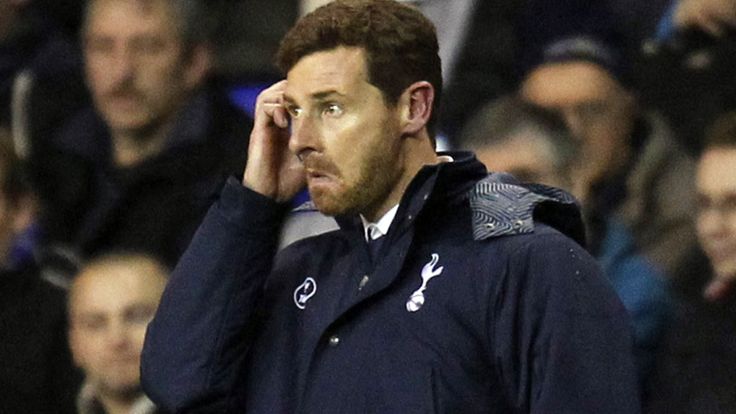In light of the dismissals of Andre Villas-Boas and Steve Clarke after mediocre rather than disastrous starts, Nick Miller ruminates on why we'll likely never find out if the new breed of managers are actually any good

Wednesday 18 December 2013 10:38, UK
Nick Miller ruminates on why we'll never find out if the new breed of managers are actually any good.
The debate about Andre Villas-Boas seemingly has no middle ground. You're for him or against him. He's brilliant, forward-thinking and misunderstood or a crouching fool with a laptop who doesn't know what he's doing. It's Crips v Bloods, Montagues v Capulets, Simon v Garfunkel. Of course, as with most things, the truth probably lies somewhere in the middle. But this is not an assessment of whether Villas-Boas is any good, for you'll have read enough of those in the last few days. In truth, we don't really know if Villas-Boas is any good, because we don't have all the evidence. We have mentioned on this site before that one of Villas-Boas' problems at Chelsea was that he knew little of failure. He came into that job after winning everything at Porto, and had little knowledge of how to react when things started going wrong. That extends beyond just a single season. The making of a manager is surely not how he does when things are rosy, but how he recovers and sets things right when in a tight spot. Sir Alex Ferguson, Arsene Wenger, David Moyes - all of these long-serving managers have been through fallow periods, and have recovered and put their teams right again. The problem with this new generation of managers is that they will not be given the chance to make things right. You'll have seen any number of statistics about the average tenure of a football manager in this week when Steve Clarke, Gianfranco Zola and Villas-Boas left their jobs after runs of form that were bad, for sure, but not irreversible. All three of those managers might have turned things around if they had been given time to do so. They might not have. But we don't know, because they weren't given that chance. This is not another column decrying the impatience of club chairman, of pining for a time when every manager was given three years to make a mess of things and kids played in the street and men were men etc. For one thing, why were people surprised this week when Clarke was dismissed? This has been the prevailing culture for some time now - he was in the job for a season and a half and they weren't winning many games. It shouldn't have taken a slide rule to work out he was in trouble. Presumably when/if Sam Allardyce is handed his cards there will be similar uproar. It's perfectly understandable that clubs see things going wrong, can't picture them getting better and make a change. It's pre-emptive - in another world it might be praise-worthy and be called pro-active. However, in this era when managers are not given the chance to fail and recover, it's difficult to work out who is actually any good. It's easier to judge some of the men who have been around for a while, but this culture of rapid dismissals at the first sign of adversity means that assessment of new, younger coaches is all-but impossible. If we write off every manager who's given the boot after six months then we won't have many managers who we can even call decent, let alone 'good'. With a few exceptions, managers now can be filed under either 'able to achieve success pretty much straight away' or 'rubbish', with not a huge amount in between. Perhaps there's no such thing as a 'good' manager, just the 'right' one for any particular situation. Not that this necessarily matters. Managers will keep getting jobs for assorted reasons, and they will succeed in some places and fail in others. It just makes things more confusing for the rest of us. This article first appeared on Football365